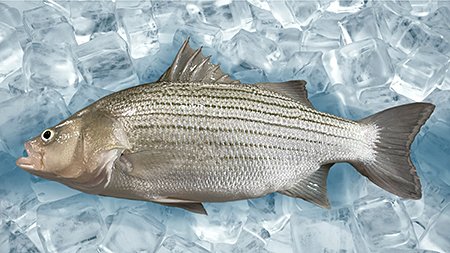by Benchmark Genetics Norway AS
Our team of scientists has identified a significant quantitative trait locus (QTL) affecting resistance to Streptococcus iniae in Tilapia, a significant step towards improving the health and sustainability of Tilapia farming.
Recent research demonstrates a significant quantitative trait locus (QTL) affecting resistance to Streptococcus iniae in Benchmark Genetics’ high performing strain of Nile tilapia. This discovery is the result of an awarded collaboration between the USDA’s Aquatic Animal Health Research Unit (AAHRU) and Benchmark’s geneticist Sergio Vela-Avitúa et al.
The QTL found by the team explained up to 26% of the genetic variation in resistance. Fish were then selectively bred for survival to S. inae using marker-assisted selection (MAS) to demonstrate resistance in fish classified as “resistant” or “susceptible”.
“The results were impressive, with a final cumulative percent mortality of only 1% for offspring from resistant parents, compared to 73% for offspring from susceptible parents. These results demonstrate that MAS for improved resistance to S. iniae is feasible and likely to be highly effective” said Sergio Vela-Avitúa, Geneticist at Benchmark Genetics.
Benchmark Genetics has already implemented these results into their breeding and production of genetically improved Spring Tilapia® breeders and fingerlings.
Morten Rye, Director of Genetics at Benchmark Genetics commented: “We are thrilled to announce this breakthrough in the development of more disease-resistant tilapia strains.”
“Our proprietary Spring Tilapia® strain is the result of years of pioneering research and innovation, and we are committed to using our expertise to improve the sustainability and profitability of the global tilapia industry. We are confident that this new development will provide significant benefits to our customers and to the industry as a whole” Rye concluded.
Reference (open access)
Vela-Avitúa, S., LaFrentz, B. R., Lozano, C. A., Shoemaker, C. A., Ospina-Arango, J. F., Beck, B. H., & Rye, M. (2023). Genome-wide association study for Streptococcus iniae in Nile tilapia (Oreochromis niloticus) identifies a significant QTL for disease resistance. Frontiers in Genetics, 14.
Editor at the digital magazine AquaHoy. He holds a degree in Aquaculture Biology from the National University of Santa (UNS) and a Master’s degree in Science and Innovation Management from the Polytechnic University of Valencia, with postgraduate diplomas in Business Innovation and Innovation Management. He possesses extensive experience in the aquaculture and fisheries sector, having led the Fisheries Innovation Unit of the National Program for Innovation in Fisheries and Aquaculture (PNIPA). He has served as a senior consultant in technology watch, an innovation project formulator and advisor, and a lecturer at UNS. He is a member of the Peruvian College of Biologists and was recognized by the World Aquaculture Society (WAS) in 2016 for his contribution to aquaculture.
Stay Always Informed
Join our communities to instantly receive the most important news, reports, and analysis from the aquaculture industry.







